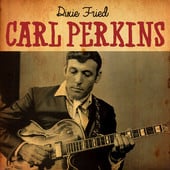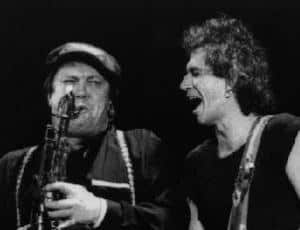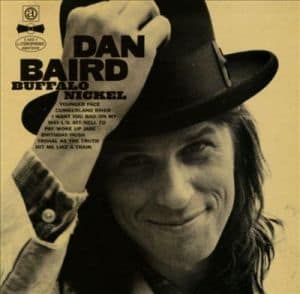Dan Baird – Rockin’ With Bobby Keys (Interview)
When Stones sax man Bobby Keys performs at Auckland’s Powerstation on Saturday, March 29th, the lead singer for his band, The Suffering Bastards will be none other than Dan Baird, the former vocalist for The Georgia Satellites. In an era of cheesy synth-pop and hair-metal bands, The Georgia Satellites blew in like a breath of fresh air with their 1986 hit Keep Your Hands To Yourself. The 13th Floor checked in with Dan Baird just as he was about to hit the road with Bobby Keys.
Listen in to the interview here:
Or read a transcription of the Dan Baird interview here:
MD: First of all I’d like to thank you for making the 80s at least much more bearable than it could have been.
DB: Well, we did our part, I mean, you know, that was, you know, I need to thank both of The Fabulous Thunderbirds and Jason & The Scorchers for kicking open the left wing and right wing door.
MD: Right.
DB: And um, you know and we just kinda like walked in with the right song.
MD: Right, so were they a direct inspiration to you or did they just happen to be doing the same thing at the same time?
DB: Well they were kinda doing the same thing at the same time, but The Scorchers got, you know, college radio thinking that was cool and The Thunderbirds got thinking, you know, regular rock radio, you know, that this thing was kinda cool and it’s just, you know, without those two bands, you know, coming in there a couple years before us, we didn’t stand a chance. We were just somebody that described The Satellites as chicken fried Aerosmith and I think he really meant to put us down but it didn’t work either.
MD: Sounds good to me, I could think of worse things to be called I guess.
DB: Yeah yeah, um, you know, it’s a funny thing though, we just happened to be, you know, come along right place right time, I think and er, you know, with the right tune
MD: Did you feel like fish out of water though? I mean, I remember when I first, I think I first became aware of you by seeing the video on MTV and it just kind of stuck out as like “Oh My God, where did this come from”.
DB: Yeah, it was, the guys that directed that, you know, it’s like we were really unsure, but they really wanted to play at the rural aspect of it.
MD: Right.
DB: And er, it was just really funny, I mean, you know, it was like you’ll stand out, and you know, we did.
Watch the video for Keep Your Hands To Yourself here:[youtube http://www.youtube.com/watch?v=PdpAop7gp0w]
MD: Yes indeed.
DB: So I mean, rather than making, you know, rock band playing with smoke and lights and, you know, milk on the sneer drum and all the other stuff and, you know, rock bands are trying to do. You know, they said look let’s make you guys ride around back of a flatbed truck, you know. “Well okay”
MD: it showed that you kind of didn’t take yourself too seriously as well which I think helped them.
DB: Well, I mean, its, that song can’t take itself too seriously, it should have been written by Carl Perkins in the 50s.
MD: Right.
DB: But it wasn’t, you know.
MD: He did have, I remember he had a song called Dixie Fried which is kind of along the same lines I guess.
DB: Yeah, yeah, I remember that, we tried to work that one up. The climb *sings tune*, yup.
MD: Yeah, that’s the one.
DB: We never got the climb to sound right.
 Listen to Carl Perkins’ 1956 recording of Dixie Fried here:
Listen to Carl Perkins’ 1956 recording of Dixie Fried here:
MD: Oh I see, alright, I was hoping, did you ever get any sponsorship from Converse Sneakers from that video because it seemed like you must’ve kicked off.
DB: No, no we didn’t but they were so cheap back then you didn’t need the sponsorship.
MD: Yeah, I think they cost about 10 bucks back then.
DB: Yeah they were actually, they had gone up to 20 by the time that, I’ve got a ridiculously high arch in my foot and I can, the idea of wearing a set of Converse right now is just “oh my god”. The foot version of the electric chair.
MD: Right well, Yeah, I’m wearing them and they feel good to me, they are like slippers.
DB: Yeah, it’s like I say I have this ridiculously high arch. I used to run in those.
MD: Crikey.
DB: I used to do, you know, like laps and shit in those things and it’s just like “Oh My God, Oh my God am I paying for it now”. Anyway.
MD: Alright, well anyway, you’re gonna be here to front the band with Bobby Keys and so.
DB: Bobby Keys fronts the band I’m his, as Charlie Watts said “you’re my singa”.
MD: Gotcha.
DB: And, I’m the singer, rhythm guitar player in Bobby Key’s band
MD: Alrighty.
 DB: Um, and Bobby talks to the crowd, it’s his band, by god, and er if he gets a little winded I’ll take over for a minute, let him catch his breathe. But er, it’s er, man it’s so much fun playing. This is the set list that I played when I was 15.
DB: Um, and Bobby talks to the crowd, it’s his band, by god, and er if he gets a little winded I’ll take over for a minute, let him catch his breathe. But er, it’s er, man it’s so much fun playing. This is the set list that I played when I was 15.
MD: Gotcha, yeah.
DB: You know, seriously, you know, when I was in my first band we tried to work up Live with me. We tried to work up the ladder, you know. And it’s just like, er we weren’t good enough. But you know, now we’ve got, you know, the guys that aren’t good enough and then when it’s time for the show, and by god, there’s “the dude”
MD: Yeah, right so how did you get hooked up with this set up? Have you known Bobby for a while?
DB: Not terribly long, he was in Nashville and er, Michael Webb, er, the keyboard player and Chark Kinsolving, the guitar player, um were playing with them were some guys that were from up Laurelville. And that wasn’t working out. He wanted some guys that were local and stuff. And er, so at the time it was , let me see, it was Robert Currin still er and he’s gonna be with us. Er and at the time it was Steve Gorman from The Crowes. Er that swapped over to Brad Pemberton from The Cardinals, Ryan Adam’s band. And er, but er, they said let’s try this group of guys and er, bobby came in and I’ve done one or two things. I think we’ve done er, a night that er, they were doing a recreation of the Exile On Main Street, they had hired Bobby in the horn section and I’d met him there and you know, just said hey, and er, basically came up and.. You follow baseball at all?
MD: Oh sure.
DB: oh okay, I told him, dude you’re not necessarily from this decade, but you’re like in the 1970s who we gonna get to play third base in the national league, you know.
MD: Right.
DB: you know it’s just like, Keys, you know, there you go, who’s gonna play sax, Keys, you know, you’re the guy. You’re on the all-star team.
MD: Right.
DB: you know, he laughed, he likes that analogy. And er, and then when were rehearsing he kinda said ”I like you, you sing like I play, just a little bit flat all the time”. We definitely got on, he can get a better singer, and he can get a better rhythm guitar player, but he can get a better singer if he wanted to. You know, but we have just a tonne of fun doing the thing, its like how serious it is, it’s like a set list you would have drawn up when you were 20 years old.
MD: Right, right yup sounds like it’s gonna be a pretty wild night.
DB: Yes it is really a lot of fun. I mean the fun thing is to just sit out there and watch people’s mouths fall open when they hear the solo for The Wanderer or Live With Me come out.
MD: Yeah.
DB: They just go like “oh my god” that’s the sound, that’s the one.
MD: Now, your own self, you seem to be involved in any number of other bands including the Bobby Keys thing.
DB: I got the Homemade Sin and The Bluefields, The Bluefields I’m playing bass in, trying to discover the wide world of the bottom end, which seriously the most fascinating thing, I’ve picked the right thing to do later in life, you know, it’s just like how does this really work and the strange thing that it has to do. The bass is the hinge between frame and the door, it’s like you know, both are nice things but they don’t work without good bass, you know, the beat and the chords and everything, the melody it’s just like if you don’t got bass you ain’t got nothing.
MD: Right. Your solo career, you know, you had a couple of releases in the early 90s I guess it was.
 DB: Buffalo Nickel and Love Songs for the Hearing Impaired
DB: Buffalo Nickel and Love Songs for the Hearing Impaired
MD: Yeah, for a lot of folks that was kind of like the last time they had heard of you. So what do you have to say to the folks who’re going “where has this guy been”.
DB: In a place that’s a little harder to find, that’s where I’ve been.
MD: Right.
DB: You know, I had the Yayhoos, I was with them in er you know, the late 90s. And I’ve been back out doing my own now, er, I was just doing live stuff for a long time and I put together a band, I’ve had Keith Christopher and Mauro Magellan who played, Mauro played with The Satellites and Keith was an original Satellite but he came back in on the solo stuff. It was very complicated and soap opera-esque.
MD: I’m sure
DB: Anyway, I got those guys back out with me on the road and got Warner Hodges to come play guitar from Jason and the Scorchers and er, it’s been a, you know, a pretty damn good band.
MD: Gotcha, So when The Satellites first came on the scene, it was kind of a breath of fresh air, you were doing, obviously, very straight head rock and roll, which is very different then what was going on at the time. How do you feel about the kind of the status of rock and roll now here in 2014, has it changed? Has it evolved?
DB: It’s out there, you just gotta go find it, I mean it’s all over the place, you can find a lot of like-minded folks and if you don’t get too precious about it, you know, instead of going “hey there’s a good band over here there’s a good band over there” I mean it’s kinda like, you know, rock and roll is good, here comes The Black Keys, you know, it’s just like no, no it just keeps changing, it keeps morphing and if you don’t wanna bother finding it you don’t have to. You know, it’s out there, it’s alive and well it’s taken on different forms, it’s you know, right now we’re going through the whole thing of everybody’s trying to look like they’re on the cover of their second band record and play, you know.
MD: Mandolins
DB: Accordions, Yeah mandolins and accordions. And that’s the shape their taking right now. Somebody is gonna hear that, a Rolling Stones record and a Black Keys record and put those three things together.
MD: Right.
DB: you know, and whatever’s going on in the current, you know, whatever soul music has turned into now. You know you just have to combine those things and they’ll come up with something new. You know, Sorry, it’s become a quite middle class folk music.
MD: It also seems like it’s kinda gone back underground, which is probably good thing for it, rather than.
DB: It’s good for it, it’s good for it. It’ll come back out with something, you’ll see somebody come back around and you don’t know where it’s gonna come from. Whether its gonna come out of, you know, Cambodia or New Orleans again, you just don’t know and it’s good for the music. It needs to go away and refresh itself and we were, you know, we were part of the thing where everybody, you know, the punk thing did the job in the 70s and, you know, the 80s got a little bloated, we were a little bit of, you know, fresh air, you know, The Scorchers and the T-birds did that thing and just started opening it back up and The Crows took it and then kind of hit it off in a jam band go with it and bought that thing some meat and potatoes, which it desperately needed.
MD: Right.
DB: You know, and it’ll just keep going, it’ll keep, it’ll be fine.
MD: Well that’s good to know.
DB: It’ll be fine, it may be harder to find then you think, but it’s out there.
MD: Right.
DB: You know, especially if you have a little bit of home recording, kids go hide and play guitar and program a drum beat, you know, I’m gonna do like VAC. You know, he was the real, he was the godfather of it all, you know.
MD: Excellent
DB: Yeah, you know, it depends on what you wanna look at
MD: Right
DB: you know, there’s always been music du jour and it’s not gonna come out of some big label, big labels are now are there to make something big, explode, you know, whole wide and that’s all they’re there for, they’re not here to discover anything anymore, they’re not here to neuter anything born in the days of Atlantic Records.
MD: Right.
DB: You know, ‘cause there aren’t no more records, it’s all freeware and you do it to get people to come see your band, and hopefully they’ll feel guilty enough to buy a CD and you’ll sign it at the end of the show.
MD: Or at least a T-shirt.
DB: Yeah, you know, buy the bundle and, you know, help the band out, you know, and that’s the lay of it now. It’s changed and its morphed and its morphed back into what it used to be in the 50s, and sold records out of your truck, you know, don’t think it didn’t happen, it did.